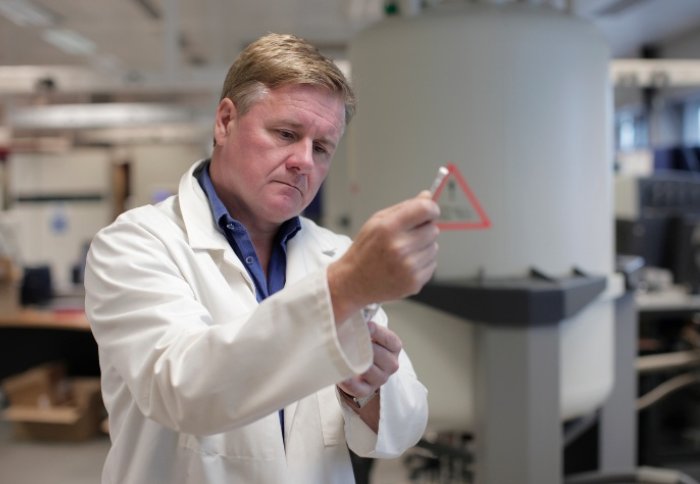Chinese Academy of Sciences honours Imperial academic

Professor Jeremy Nicholson, Head of the Department of Surgery & Cancer, has been elected Einstein Professor of the Chinese Academy of Sciences.
The prestigious title, awarded annually to distinguished international scientists, aims to foster links, collaboration and exchange between the Chinese Academy of Sciences – China’s national scientific body – and the world’s leading researchers and institutions.
I am delighted to have been elected to this prestigious role and I’m thrilled to have the chance to work closely with some of China’s leading research institutions
– Professor Jeremy Nicholson
As part of the Einstein Professorship Programme, Professor Nicholson will conduct a number of lecture-tours and academic discussions at institutions across China in order to enhance the training of future generations of Chinese scientists.
Professor Nicholson has been recognised for his contribution to the field of Medical Biochemistry – thanks to his pioneering research into metabolic phenotyping and profiling at Imperial. We caught up with him to find out more.
Tell us about your research into metabolic phenotyping and profiling.
Each type of cell and tissue in the human body has a unique metabolic ‘fingerprint’, which is influenced by interactions between a person’s genes and their environment – such as diet and lifestyle. Analysing this can provide a wealth of information about the state of a person’s health, including their risk of disease and how likely they are to respond to a particular treatment or therapy.
At Imperial we have long been the leaders in this field, and are using advanced technologies, such as mass spectrometry and nuclear magnetic resonance, to undertake metabolic profiling on an unprecedented scale. In the long-term this will lead to better diagnostic tests and treatments which are tailor-made for individual patients
How does it feel to be named Einstein Professor?
I am delighted to have been elected to this prestigious role and I’m thrilled to have the chance to work closely with some of China’s leading research institutions as part of the programme
This is an exciting opportunity to contribute to the training and development of China’s future scientific leaders, and I look forward to meeting many of them during the visits and lecture-tours over the coming year.
The aim of the program is to strengthen links with Chinese scientists and institutions. How will this benefit your research?
Much of my research involves the large-scale metabolic profiling of different populations and examining variations between them. Forming long-lasting links with Chinese institutions will allow us access to population samples and medical areas that are usually unavailable to us in the West – furthering our understanding of the way that our genes and our environment combine to affect our risk of getting a disease.
Why do you think that such relationships are important?
The world’s scientific landscape is changing. China’s research output has surged in recent years, and the country is rapidly emerging as a key player in scientific fields that have previously been dominated by the West. The Chinese Academy of Sciences is the linchpin to the county’s research activities, and forming mutually-beneficial collaborations with its institutions and scientists will help drive forward research and scientific innovation in both countries.
One of Imperial’s key strengths is its global outlook and the Einstein Professorship supports this - raising the profile of the College and its research in China and helping to foster and support long-lasting relationships to the future benefit of all.
Article text (excluding photos or graphics) © Imperial College London.
Photos and graphics subject to third party copyright used with permission or © Imperial College London.
Reporter
Deborah Evanson
Communications Division